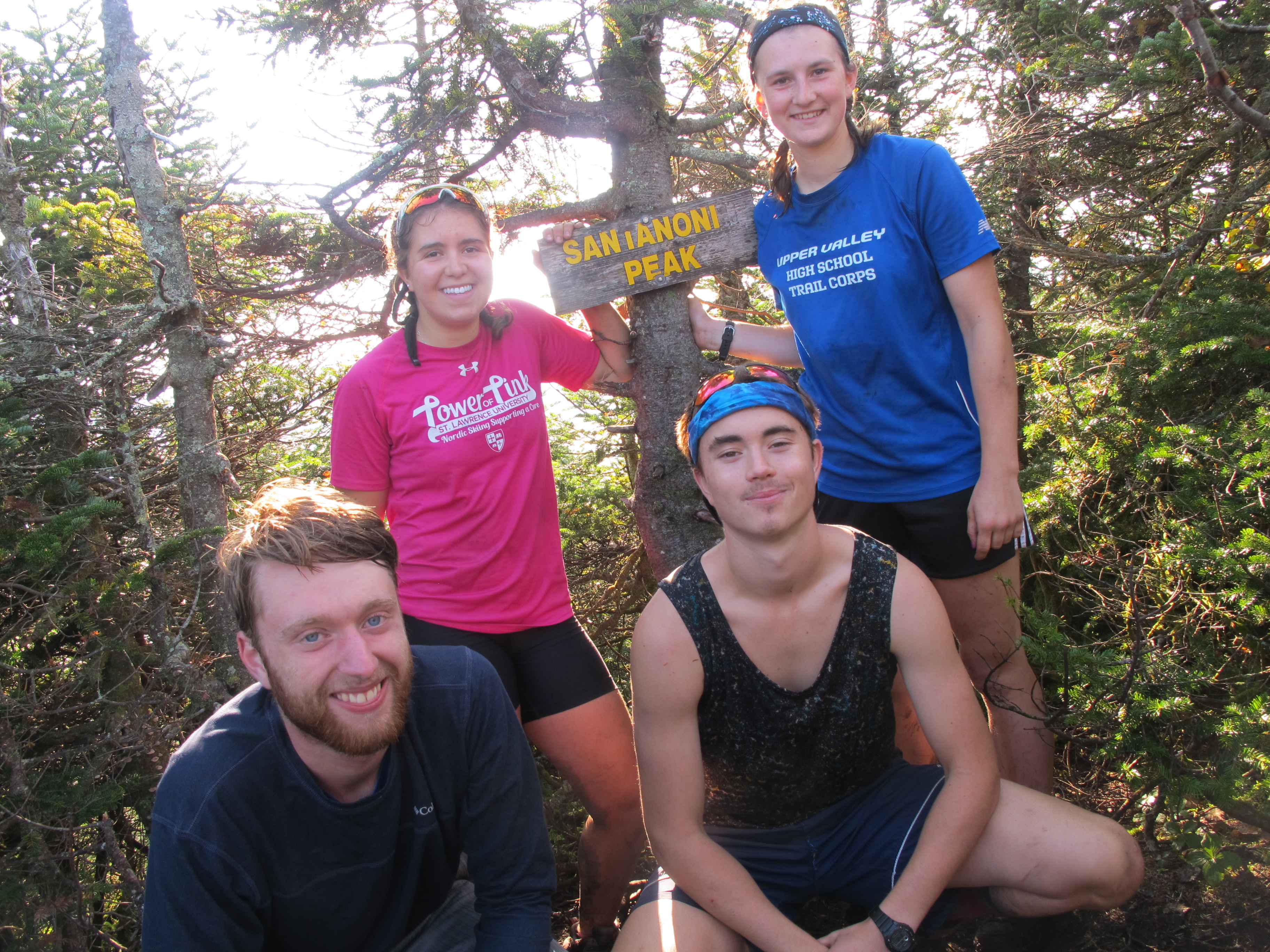Ryan Schlosser
CRCF: So tell me about your experiences in the Adirondack program.
RS: It’s a study abroad program at Saint Lawrence University. It’s kind of funny that it’s considered study abroad because it’s only an hour away from campus. This is the 19th year that it’s been a program. It was started by a group of professors in the science department. Basically, they came together and tried to figure out a way that they could make students care about climate change. They came to the conclusion that to make college students really care that they would have to have a place to love and care about. So then from that idea they formed the rest of it – putting the program in the Adirondacks.
It’s a full-semester program that is only offered in the fall, just because the Spring semester is pretty much the winter semester here. They accept between 10 and 12 students each year.
We all lived together in a yurt village. From talking to all my relatives at Thanksgiving I realized that nobody really knows what a yurt is [laughs]. It’s basically a circular wooden platform, and the sides and top are canvas to block the wind. It’s pretty much a cross between a tent and a cabin. It’s not as permanent as a cabin is, but it’s definitely more protective than a tent.
The yurt village is called Arcadia; it’s called arcadia because it’s an old Greek word [which comes from a name meaning “pastoral simplicity and happiness”], in this context it’s all about merging nature and technology , which is kind of like a mission statement for the whole semester. In my experience, at least, that’s what it was all about: learning how to live with less. So no running water, limited electricity, wood stove for heat. I wasn’t thinking it was something I would live with forever, but I came out of that with a new-found appreciation for how easy life is in our modern world.
CRCF: What kind of activities were you involved in during the course of the program?
RS: The program starts one week before normal classes. The reason for that is that we all go on a seven-day canoe trip – the 12 students and two assistant directors – that’s a 70-mile trip through the Adirondacks. The trip actually ended right at Arcadia.
The first few days at Arcadia were just about introducing us to the systems there — so things like learning how to use a compost toilet and pour saw dust in when you’re done using it – even basic things like that are more complex there.
All 12 of us took the same classes. How it worked was that we had one class a day, Monday through Friday, and it was a three-hour class. That was the only time we had that class we had for the week. Every day was essentially one focus for a pretty in-depth amount of time.
On the weekends we were still all together. We did a lot of weekend excursions. We went white water rafting on the Hudson River. Another weekend we went to Essex County near Lake Champlain and visited a bunch of dairy and meat farms there because another one of the big focuses of the semester was eating local foods, so we always got a lot of local vegetables, meat and dairy products. We did a chicken slaughter at a farm there and brought back the chicken to serve for our parents at family weekend. That was all about bringing us more in touch with where food comes from. Obviously steaks don’t just appear plastic wrapped at the grocery store.
Then, in late September we had a hiking trip similar to the canoe trip. It was a seven-day trip through the western Adirondacks high peaks. Some other smaller excursions we did included “solos” one weekend. The property we lived on was a conservation easement, so it was open to the public to use recreationally. There were a bunch of camp sites we were allowed to go to at any time. For solos weekend we were encouraged to find a spot of our own — they were far enough apart that we wouldn’t be able to hear or see anybody else — and do one or two nights of solo camping. That was a good experience. Some had better a time than others [laughs], but we all learned a few things.
Another big part of what we did was taking long field trips to different historical Adirondack locations to learn about them and write papers. Then [the professors] would use “the Adirondack example” to tie in bigger social issues and just things bigger than the Adirondacks. That included things like clear cutting or acid rain.
A lot of what we learned in class was more intriguing than what we would have learned on campus just because I could see clear cut forests and how they differed from a healthy forest.
CRCF: What were your career and education aspirations before this program, and how did the program affect that?
RS: Going into this program I was pretty set on being an economics major. That’s still a big part of what I want to do, but before the program I really did not have much of a clue what I wanted to do for a career, and I didn’t really have any interest in writing and just a little in environmental studies.
Definitely I added on the environmental studies portion of my major and the creative writing minor because I was forced to take classes that I wouldn’t have chosen to take otherwise. So we took a creative writing class, and I really loved it. For some of the assignments and papers that other people were complaining about I was actually having a good time! So I thought, “If I’m having such a good time I might as well keep doing this.” I definitely developed more of an interest in English and writing – particularly creative nonfiction because that we focused on.
As far as a career, I definitely still don’t have much of an exact idea, but I think my new-found drive to write has opened more ideas and possibilities to be something like a traveling journalist focusing on environmental issues.
CRCF: What was it like to live such a different lifestyle, and how has what you learned from that experience affected how you live and think now?
RS: Definitely living the way we did there makes you more of aware of the things that you have taken for granted. At first, I missed running water and having a hot shower. I missed the convenience of having food ready whenever like on campus. So to be in a situation where we ate dinner together [in the program] and that’s the one time you can eat, that was definitely different for me because I wasn’t used to having a strict schedule.
After two weeks or so you adjust. You’re still aware that you don’t have everything you’d have in your normal life back home, but it starts to feel normal. Carrying hot water to the kitchen to filter the drain and things like that – that’s what you do at that point.
Coming back to my house for Thanksgiving break I wouldn’t say was that hard. It wasn’t too hard to leave at the end just because at that point we were starting to get temperature lows in the single digits at night. It was really cold, and I think we all were sensing it was time to leave [laughs].
But being back now makes me even more aware of how easy life is living how most do with electricity and running water. Before I would overlook the simplicity of turning a light on or having a warm house. Now I can think about that and be genuinely so appreciative where before that wouldn’t even be on my mind. I’d be concerned about something on Facebook or the world would be ending because I didn’t have a new pair of shoes or something. It puts your mindset in a place where the luxuries in life are not super important.
CRCF: What are your future plans at St. Lawrence, and what type of things do you plan to be involved in going forward now?
RS: This upcoming semester I’m taking a guide training course, which is basically like the theory behind outdoors education and how to implement it. Then we learn hard skills like navigation. So I’m taking that class and also living in the outing club, which is a house on campus that leads hiking, canoeing, skiing, basically any kind of trips you can dream of, for the rest of the campus. So it appears now I have a lot of outdoor trips and experiences ahead of me at SLU.
I’ve also thought that maybe guiding would be a job I could do someday. It’s definitely a job I would do for passion rather than money because it’s certainly not like you make a lot doing it.



